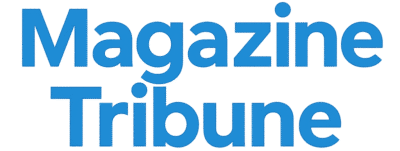Market Size
The pharmaceuticals market reached a significant milestone in 2024 with an estimated value of USD 1467.14 billion, showcasing its indispensable role in global healthcare. This substantial market size is driven by several factors, including a rising global population, the increasing prevalence of chronic diseases like diabetes and cardiovascular conditions, and a growing focus on improving healthcare access in developing regions. Demand for both branded and generic drugs remains high, with governments investing heavily in national healthcare systems and insurance coverage expanding worldwide. Furthermore, pharmaceutical companies are capitalizing on new revenue streams through advanced biologics and biosimilars, which are addressing complex medical conditions previously left untreated. The robust market size is also supported by the aging population, which requires long-term treatments and continuous medication management. Moreover, the pharmaceutical industry’s investment in cutting-edge research and development, especially in oncology, immunology, and rare diseases, is keeping the pipeline active and promising. As a result, the pharmaceutical market’s massive valuation not only reflects its present economic significance but also underlines its vital position as a driver of global health security, economic development, and innovation. This foundation sets the stage for continuous growth over the coming decade.
Market Trends
The pharmaceuticals market is undergoing rapid transformation, marked by notable trends shaping its present and future trajectory. One major trend is the growing dominance of biologics and biosimilars. These large-molecule drugs are revolutionizing treatment for diseases like cancer, autoimmune disorders, and rare genetic conditions by offering more targeted and effective therapies. Digital transformation is another powerful trend, with artificial intelligence and big data analytics accelerating drug discovery, patient monitoring, and supply chain efficiency. Personalized medicine is gaining traction too, as advances in genomics and molecular biology enable treatments tailored to individual patient profiles, improving outcomes and minimizing side effects. Sustainability is increasingly embedded into corporate strategies, with leading pharmaceutical companies committing to greener manufacturing processes and ethical sourcing. Another important shift is the expansion of telemedicine and digital pharmacies, enhancing patient access to prescriptions and consultations, especially in remote regions. Additionally, collaborations and partnerships between biotech startups and established pharmaceutical giants are fueling innovation, ensuring faster development and commercialization of novel drugs. Together, these trends are setting a new benchmark for how the pharmaceutical industry operates—driving it toward more patient-centric, technology-driven, and sustainable practices that will define the next decade of global healthcare.
Market Opportunities and Challenges
Significant opportunities lie in the expansion of healthcare access in developing regions, where rising income levels are increasing demand for both branded and generic drugs. Breakthroughs in biotechnology and precision medicine also present lucrative growth avenues. However, the industry faces challenges such as stringent regulatory frameworks, high development costs, and patent expirations that open doors for generic competition. Global supply chain vulnerabilities, highlighted during the pandemic, continue to pose risks. Addressing these challenges will require robust policy support, resilient infrastructure, and collaborative innovation among stakeholders across the value chain.
Segmentation
By Molecule Type
- Biologics and Biosimilars (Large Molecules)
- Conventional Drugs (Small Molecules)
By Product
- Branded
- Generic
By Availability
- OTC
- Prescription
By Therapeutic Area
- Cardiovascular
- Oncology
- Diabetes
- Infectious diseases
- Neurological
- Respiratory
- Immunological
- Genetic and Rare Genetic Diseases
- Others
By Route of Administration
- Oral
- Topical
- Parenteral
- Inhalations
- Others
By Formulation
- Tablets
- Capsules
- Injectable
- Sprays
- Suspensions
- Powders
- Others
By Age Group
- Children
- Adults
- Geriatric
By Region
- North America
- Europe
- Asia Pacific
- Latin America
- Middle East and Africa
Market Growth
The pharmaceuticals market is positioned for steady growth over the coming years, supported by a dynamic mix of innovation, investment, and rising demand. Companies are prioritizing research and development to bring advanced therapies to market, addressing complex and previously untreatable diseases. Biopharmaceuticals, including monoclonal antibodies and gene therapies, are pushing the boundaries of medicine, opening new revenue streams for leading players. Increased healthcare spending by governments worldwide and the expansion of insurance coverage are further propelling market growth. Emerging markets in Asia Pacific, Latin America, and the Middle East are playing a significant role, driven by better healthcare infrastructure, urbanization, and growing awareness of advanced treatments. The generic drugs segment is expanding as patents for blockbuster drugs expire, boosting affordability and accessibility in cost-sensitive regions. Additionally, digitalization across the pharmaceutical value chain—from smart manufacturing to AI-powered clinical trials—is improving efficiency, reducing costs, and accelerating time to market. Strategic mergers, acquisitions, and collaborations are strengthening market presence and enabling companies to diversify their product portfolios. Together, these factors make the global pharmaceuticals market a resilient and expanding sector that continues to evolve to meet the world’s changing healthcare needs, securing its growth for the next decade.
Market Forecast
Looking ahead, the future of the global pharmaceuticals market appears robust, with projections indicating a healthy CAGR of 6.20% from 2025 to 2034. By the end of this forecast period, the market is expected to reach an impressive USD 2677.42 billion, reflecting consistent growth driven by an expanding global population and rising prevalence of chronic and lifestyle diseases. The increasing adoption of precision medicine and biopharmaceuticals will likely accelerate revenue streams for key players. As healthcare systems in developing economies mature, demand for affordable generics and high-quality branded medicines will rise sharply, creating lucrative growth opportunities. The push for innovative vaccines and treatments to address emerging infectious diseases will also remain a key catalyst, as demonstrated by the rapid advancements made during the COVID-19 pandemic. Regulatory agencies are streamlining approval processes to ensure life-saving drugs reach patients faster, which bodes well for sustained pipeline momentum. Moreover, the integration of digital health solutions and AI-driven diagnostics will enhance treatment efficacy and patient adherence. Overall, the pharmaceutical industry’s long-term forecast reflects strong fundamentals supported by innovation, global partnerships, and a growing emphasis on accessible and sustainable healthcare, setting the stage for a thriving market through 2034 and beyond.
Competitor Analysis
The competitive landscape of the global pharmaceuticals market is marked by the presence of key industry leaders who drive innovation, global expansion, and strategic partnerships.
Abbott: Leading global healthcare company specializing in diagnostics, medical devices, and branded generic medicines.
LONZA: Major provider of pharmaceutical development and manufacturing services worldwide.
F. Hoffmann-La Roche Ltd.: Renowned for its oncology and diagnostics segments with continuous innovation.
Merck KGaA: German science and technology company focusing on healthcare, life science, and performance materials.
Johnson & Johnson Services, Inc.: Global leader in pharmaceuticals, medical devices, and consumer health products.
Pfizer, Inc.: Multinational biopharmaceutical company known for vaccines and prescription medications.
Sanofi S.A.: French pharmaceutical giant with a strong portfolio in vaccines and rare diseases.
GSK Plc: British multinational focused on pharmaceuticals, vaccines, and consumer healthcare.
Bristol-Myers Squibb Co.: American pharmaceutical company renowned for oncology and immunology drugs.
Novartis AG: Swiss company specializing in innovative medicines and generics.
AstraZeneca PLC: Global biopharma firm leading in oncology, cardiovascular, and respiratory therapeutics.
Eli Lilly & Co.: US-based company known for its diabetes, oncology, and immunology treatments.
Gilead Sciences, Inc: Focuses on antiviral drugs and therapies for HIV, hepatitis, and more.
Bayer AG: Diversified company with strong pharmaceuticals and consumer health segments.


